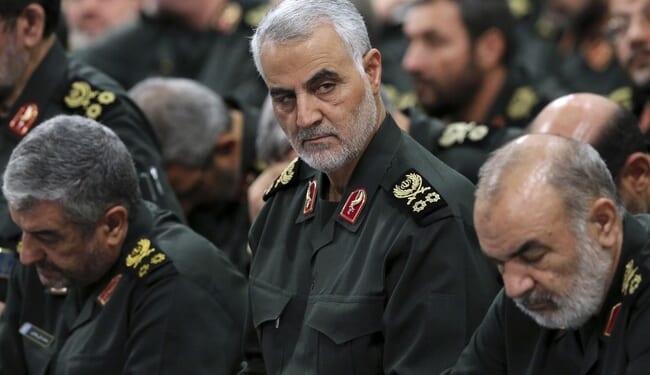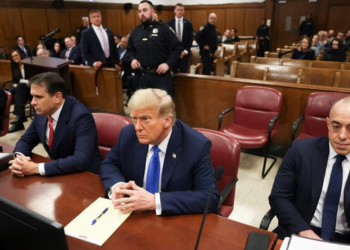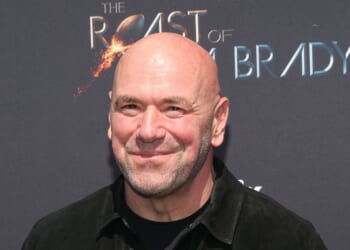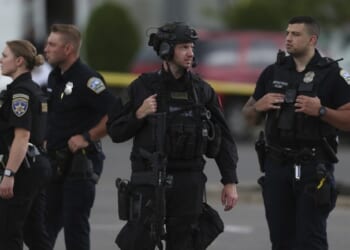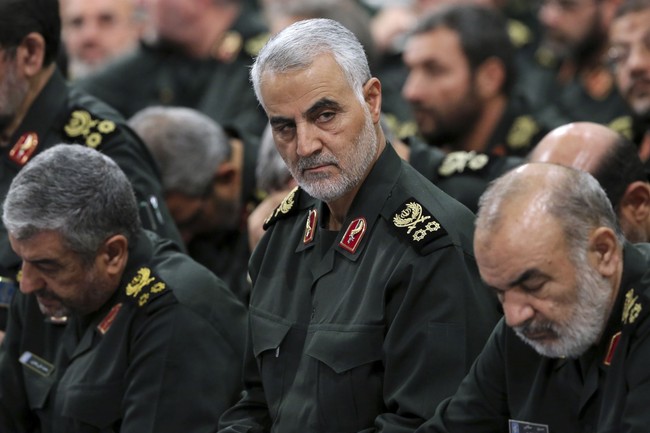
Two bombs exploded in the middle of a procession at an Iranian cemetery that commemorated the death of Iranian General Qassem Soleimani, who was killed in a drone attack ordered by Donald Trump on Jan. 3, 2020. At least 103 people were killed and 171 injured. Dozens more are in critical condition, and the death toll is expected to rise.
Soleimani, one of the top Iran Revolutionary Guard Corps (IRGC) commanders, was responsible for the deaths of hundreds of American service people in Iraq and the Middle East.
It’s unknown if an explosion in the suburbs of Beirut on Tuesday that killed several high-ranking Hamas leaders was related.
Soleimani built several terrorist organizations across the Middle East and achieved hero status among Iranian supporters throughout the region.
General Suleimani had been hailed in Iran and in parts of the wider region as a hero for building and arming a Tehran-led network of regional proxy militias that countered the United States and Israel across the Middle East, and he continues to enjoy near-mythic status among pro-government Iranians. His funeral in 2020 drew more than a million mourners, according to official estimates. Every year, on the anniversary of his assassination, some Iranians hold processions and ceremonies in his honor.
Iran-Bomb Explosions
Terrorist blast near the tomb of IRGC General Qasem Soleimani.
At least 103 people were killed and 211 were injured.#Iran #QasemSoleimani #terroristattacks #kerman pic.twitter.com/gKKsBUPCCD
— PureStreamMedia (@PureStream02) January 3, 2024
Many thousands were marching in the procession. The Times reports that most of the casualties came from the second explosion after marchers rushed to help the injured from the first blast.
Iran has declared Thursday an official day of mourning.
The Wall Street Journal reports that people “familiar with Israeli operations” have said that the government of Prime Minister Benjamin Netanyahu has told other nations that Israel was not responsible.
Indeed, it doesn’t track. Mossad has never carried out a mass casualty attack that killed dozens of innocent people. (It has hit a specific target that created some collateral damage but nothing on this scale.) That’s not to absolve Israeli intelligence from carrying out the attack. We still don’t know if some high-ranking Hamas or Hezbollah leader wasn’t the primary target, in which case that might have changed the calculus.
Soleimani’s influence is still being felt today.
By cultivating close personal ties with the leaders of partners across the region, the Arabic-speaking General Suleimani became the face of Iran’s Shiite axis of influence, which reshaped Middle East geopolitics for years to come. The Syrian and Iraqi militias he helped establish also played a critical role in defeating the Islamic State, the extremist group that overran large swathes of Syria and Iraq in the mid-2010s.
The regional allies General Suleimani armed and funded also included Hamas, the military and political group that controls Gaza, as well as Hezbollah, the armed political party that dominates much of Lebanon. Hezbollah has been clashing with Israeli forces on Lebanon’s southern border even as Hamas battles Israel in Gaza.
Iran is plagued by several separatist groups, including Kurds, Arabs, and the Balochs. None of them have carried out an attack on this scale with this kind of planning and precision.

